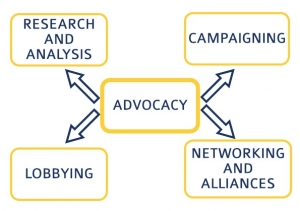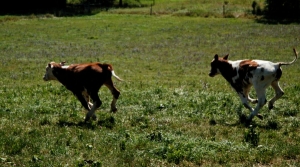- Home
- Directory
-
Our Programs
-
Strategic Advocacy Course
- Collaborations
- Humane Education
- International Policy
-
Model Animal Welfare Act
- Get the Book!
- Contents
- Part 1: Guiding Principles - A Broad Overview
- Part 2: Proposal for the Wording of a New Animal Welfare Act
-
Part 3: Explanatory Notes
- Notes to Chapter 1: Preliminary Provisions
- Notes to Chapter 2: General Provisions
- Notes to Chapter 3: Keeping of Animals/Care of Animals
- Notes to Chapter 4: Specific Categories of Animal Use
- Notes to Chapter 5: Implementation and Enforcement Provisions
- Notes to Chapter 6: Penal and Final/Concluding Provisions
- Constitution Project
-
Strategic Advocacy Course
-
Resources
- Events
- About Us
- Blog
Displaying items by tag: Research
Guest Post: Convening diverse stakeholders, finding solutions to better animal welfare
Humane Education: the Building Block for a Kinder Future
In this blog, I am delighted to introduce my personal favourite from amongst World Animal Net (WAN)’s projects! This is a Humane Education (HE) pilot project which we are carrying out in Malawi over the 2016-2017 school year, with a wide-ranging and thorough professional evaluation guided by international and Malawian experts. We are already seeing great results from this project, and look forward to the final report in mid 2017. In the meantime, we wanted to share with you this update, which was prepared for our Malawian partners - as this gives more background on the project and its progress.
The Role of Strategy in Effective Advocacy
I am sorry I was not able to attend the 2016 Effective Animal Advocacy Research Symposium which was held at Princeton University on November 12-13th. Interestingly, I note that this was organised and co-sponsored by Animal Charity Evaluators, so this ties in nicely with our last blog on Effective Altruism. Overviews of the conference presentations can be read on the event website. We were pleased to see that there were contributions on social science and movement building from Zachary Groff and Ling-Ann Hsiung, which we believe to be a crucial aspect of lasting social change.
Faunalytics: A Standout Charity Helping Animal Advocates
In today’s blog, we highlight the work of Faunalytics, a non-profit research organization dedicated to helping animals by providing useful information to advocates to help them increase their impact. You may know them by their former name: “The Humane Research Council.” Che Green, their Executive Director, has kindly shared this information about their important work with WAN and our contacts.
Encouraging Positive Actions for Animals: What Advocates Should Know About Motivating the Average Person
As animal advocates faced with difficult and heart-wrenching problems on a daily basis, it can become all too easy to think that the people whose behavior we seek to change operate using the same type of reasoning that we do. When we begin thinking that everyone is operating using the same basic rationale it becomes increasingly difficult to understand why most people, when confronted with the same information, do not adopt the same behaviors that we ourselves have adopted.





